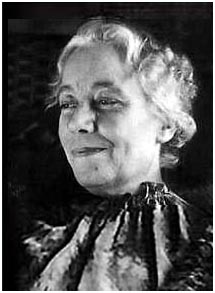
Colette Dowling (born c. 1938) is an American writer best known for her 1981 book The Cinderella Complex: Women's Hidden Fear of Independence, which was a New York Times best-seller. [1] She has a psychotherapy practice in New York. [2]

Colette Dowling (born c. 1938) is an American writer best known for her 1981 book The Cinderella Complex: Women's Hidden Fear of Independence, which was a New York Times best-seller. [1] She has a psychotherapy practice in New York. [2]
Colette Dowling was raised in Baltimore and got a BA from Trinity College in Washington, D.C., 1958. [1] Dowling has published eight books, including The Cinderella Complex, an international best-seller translated into 23 languages. She has written essays and articles for The New York Times Magazine, New York, Harpers, and Esquire.
In 2004, Dowling graduated with a master's degree in clinical social work from The Smith College School for Social Work. Following that, she entered training in psychoanalysis at the Institute for Contemporary Psychotherapy in New York, receiving her certificate in psychoanalysis in 2009. She works as a psychotherapist in private practice in Manhattan, and continues to write. Her office is in the Flatiron district. [11]
Psychoanalysis is a set of theories and therapeutic techniques that deal in part with the unconscious mind, and which together form a method of treatment for mental disorders. The discipline was established in the early 1890s by Sigmund Freud, whose work stemmed partly from the clinical work of Josef Breuer and others. Freud developed and refined the theory and practice of psychoanalysis until his death in 1939. In an encyclopedia article, he identified the cornerstones of psychoanalysis as "the assumption that there are unconscious mental processes, the recognition of the theory of repression and resistance, the appreciation of the importance of sexuality and of the Oedipus complex." Freud's colleagues Alfred Adler and Carl Gustav Jung developed offshoots of psychoanalysis which they called individual psychology (Adler) and analytical psychology (Jung), although Freud himself wrote a number of criticisms of them and emphatically denied that they were forms of psychoanalysis. Psychoanalysis was later developed in different directions by neo-Freudian thinkers, such as Erich Fromm, Karen Horney, and Harry Stack Sullivan.

Psychotherapy is the use of psychological methods, particularly when based on regular personal interaction, to help a person change behavior, increase happiness, and overcome problems. Psychotherapy aims to improve an individual's well-being and mental health, to resolve or mitigate troublesome behaviors, beliefs, compulsions, thoughts, or emotions, and to improve relationships and social skills. Numerous types of psychotherapy have been designed either for individual adults, families, or children and adolescents. Certain types of psychotherapy are considered evidence-based for treating some diagnosed mental disorders; other types have been criticized as pseudoscience.

Sigmund Freud was an Austrian neurologist and the founder of psychoanalysis, a clinical method for evaluating and treating pathologies seen as originating from conflicts in the psyche, through dialogue between patient and psychoanalyst, and the distinctive theory of mind and human agency derived from it.
Neurosis is a term mainly used today by followers of Freudian thinking to describe mental disorders caused by past anxiety, often that has been repressed. In recent history, the term has been used to refer to anxiety-related conditions more generally.
Psychoanalytic theory is the theory of personality organization and the dynamics of personality development relating to the practice of psychoanalysis, a clinical method for treating psychopathology. First laid out by Sigmund Freud in the late 19th century, psychoanalytic theory has undergone many refinements since his work. The psychoanalytic theory came to full prominence in the last third of the twentieth century as part of the flow of critical discourse regarding psychological treatments after the 1960s, long after Freud's death in 1939. Freud had ceased his analysis of the brain and his physiological studies and shifted his focus to the study of the psyche, and on treatment using free association and the phenomena of transference. His study emphasized the recognition of childhood events that could influence the mental functioning of adults. His examination of the genetic and then the developmental aspects gave the psychoanalytic theory its characteristics. Starting with his publication of The Interpretation of Dreams in 1899, his theories began to gain prominence.
Castration anxiety is an idea in psychoanalytic theory.
Superiority complex is a term coined by Alfred Adler (1870-1937) in the early 1900s, as part of his school of individual psychology.

The Cinderella complex was first described by Colette Dowling, who wrote a book on women's fear of independence – an unconscious desire to be taken care of by someone else. The complex is said to become more apparent as a person grows older.
Impostor syndrome, also known as impostor phenomenon or impostorism, is a psychological occurrence in which people doubt their skills, talents, or accomplishments and have a persistent internalized fear of being exposed as frauds. Despite external evidence of their competence, those experiencing this phenomenon do not believe they deserve their success or luck. They may incorrectly attribute it to the Matthew effect or the Dunning–Kruger effect, or they may think that they are deceiving others because they feel as if they are not as intelligent as they outwardly portray themselves to be. Impostor syndrome can stem from and result in strained personal relationships and can hinder individuals from achieving their full potential in their fields of interest.
Cyberpsychology is a scientific inter-disciplinary domain that focuses on the psychological phenomena which emerge as a result of the human interaction with digital technology, particularly the Internet.

Neal Elgar Miller was an American experimental psychologist. Described as an energetic man with a variety of interests, including physics, biology and writing, Miller entered the field of psychology to pursue these. With a background training in the sciences, he was inspired by professors and leading psychologists at the time to work on various areas in behavioral psychology and physiological psychology, specifically, relating visceral responses to behavior.
Resistance, in psychoanalysis, refers to the client's defence mechanisms that emerge from unconscious content coming to fruition through process. Resistance is the repression of unconscious drives from integration into conscious awareness.

Karen Horney was a German psychoanalyst who practised in the United States during her later career. Her theories questioned some traditional Freudian views. This was particularly true of her theories of sexuality and of the instinct orientation of psychoanalysis. She is credited with founding feminist psychology in response to Freud's theory of penis envy. She disagreed with Freud about inherent differences in the psychology of men and women, and she traced such differences to society and culture rather than biology.

In neo-Freudian psychoanalysis, the Electra complex, as proposed by Carl Jung in his Theory of Psychoanalysis, is a girl's psychosexual competition with her mother for possession of her father. In the course of her psychosexual development, the complex is the girl's phallic stage; a boy's analogous experience is the Oedipus complex. The Electra complex occurs in the third—phallic stage —of five psychosexual development stages: the oral, the anal, the phallic, the latent, and the genital—in which the source of libido pleasure is in a different erogenous zone of the infant's body.

The Oedipus complex is an idea in psychoanalytic theory. The complex is an ostensibly universal phase in the life of a young boy in which, to try to immediately satisfy basic desires, he unconsciously wishes to have sex with his mother and disdains his father for having sex and being satisfied before him. Sigmund Freud introduced the idea in The Interpretation of Dreams (1899), and coined the term in his paper A Special Type of Choice of Object made by Men (1910).
Penis envy is an idea in psychoanalytic theory.
Narcissistic mortification is "the primitive terror of self dissolution, triggered by the sudden exposure of one's sense of a defective self ... it is death by embarrassment". Narcissistic mortification is a term first used by Sigmund Freud in his last book, Moses and Monotheism, with respect to early injuries to the ego/self. The concept has been widely employed in ego psychology and also contributed to the roots of self psychology.
Robert Joseph Langs was a psychiatrist, psychotherapist, and psychoanalyst. He was the author, co-author, or editor of more than forty books on psychotherapy and human psychology. Over the course of more than fifty years, Langs developed a revised version of psychoanalytic psychotherapy, currently known as the "adaptive paradigm". This is a distinctive model of the mind, and particularly of the mind's unconscious component, significantly different from other forms of psychoanalytic and psychodynamic psychotherapy.
Joseph Cyrus Rheingold was a psychiatrist and writer of Fear of Being a Woman (1964) and The Mother, Anxiety and Death (1967), each centered on the theory of maternal destructiveness.

Marcantonio M. Spada is an Italian-British academic psychologist who has studied the role of metacognition in addictive behaviours and operationalised the constructs of "desire thinking" and the "COVID-19 anxiety syndrome". He is currently Professor of Addictive Behaviours and Mental Health and Dean of the School of Applied Sciences at London South Bank University. He is also editor-in-chief of Addictive Behaviors and associate editor of Clinical Psychology & Psychotherapy.